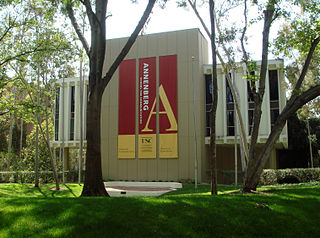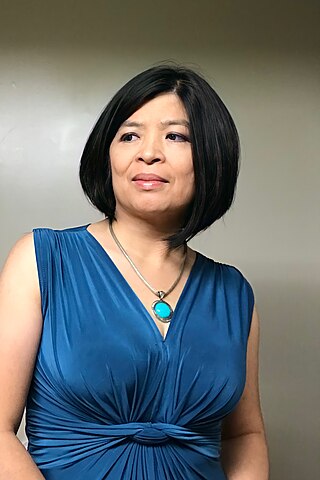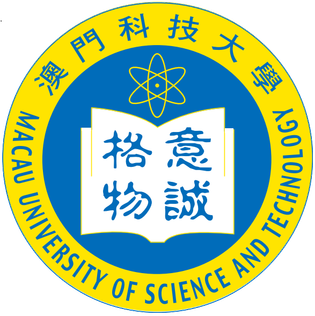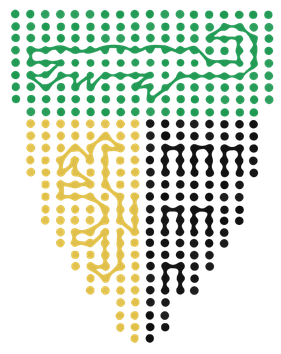Related Research Articles
New media are communication technologies that enable or enhance interaction between users as well as interaction between users and content. In the middle of the 1990s, the phrase "new media" became widely used as part of a sales pitch for the influx of interactive CD-ROMs for entertainment and education. The new media technologies, sometimes known as Web 2.0, include a wide range of web-related communication tools such as blogs, wikis, online social networking, virtual worlds, and other social media platforms.
Internet studies is an interdisciplinary field studying the social, psychological, political, technical, cultural and other dimensions of the Internet and associated information and communication technologies. The human aspects of the Internet are a subject of focus in this field. While that may be facilitated by the underlying technology of the Internet, the focus of study is often less on the technology itself than on the social circumstances that technology creates or influences.

The eGranary Digital Library is a product of the WiderNet Project, a non-profit aimed at providing access to information technology and library services in developing countries.

The USC Annenberg School for Communication and Journalism comprises a School of Communication and a School of Journalism at the University of Southern California (USC). Starting July 2017, the school's Dean is Willow Bay, succeeding Ernest J. Wilson III. The graduate program in Communication is consistently ranked first according to the QS World University Rankings.

Merlyna Lim is a scholar studying ICT, particularly on the socio-political shaping of new media in non-Western contexts. She has been appointed a Canada Research Chair in Digital Media and Global Network Society in the School of Journalism and Communication Carleton University. Formerly she was a visiting research scholar at Princeton University's Center for Information Technology Policy and a distinguished scholar of technology and public engagement of the School of Social Transformation Justice and Social Inquiry Program and the Consortium for Science, Policy and Outcomes at Arizona State University. She previously held a networked public research associate position at the Annenberg Center for Communication at the University of Southern California, Los Angeles. She received her PhD, with distinction, from University of Twente in Enschede, Netherlands, with a dissertation entitled @rchipelago Online: The Internet and Political Activism in Indonesia.

The Macau University of Science and Technology is a private university founded in 2000 at Taipa, Macau, China.

The Information Society Project (ISP) at Yale Law School is an intellectual center studying the implications of the Internet and new information technologies for law and society. The ISP was founded in 1997 by Jack Balkin, Knight Professor of Constitutional Law and the First Amendment at Yale Law School. Jack Balkin is the director of the ISP.
Content creation is the act of producing and sharing information or media content for specific audiences, particularly in digital contexts. According to Dictionary.com, content refers to "something that is to be expressed through some medium, as speech, writing or any of various arts" for self-expression, distribution, marketing and/or publication. Content creation encompasses various activities including maintaining and updating web sites, blogging, article writing, photography, videography, online commentary, social media accounts, and editing and distribution of digital media. In a survey conducted by Pew, content creation was defined as "the material people contribute to the online world."

Ernest James Wilson III is an American scholar. Wilson was the Walter Annenberg Chair in Communication, and Dean of the Annenberg School for Communication at the University of Southern California (USC), Los Angeles, California from 2007 to 2017. He stepped down as dean in June 2017 and was succeeded by Willow Bay. Dr. Wilson is the founder of USC Annenberg's Center for Third Space Thinking, which is devoted to research, teaching and executive education on soft skills in the digital age. Through the center, Dr. Wilson's most recent research focuses on critical workforce competencies and talent and skills development in the 21st Century. As a fellow at the Center for Advanced Study in the Behavioral Sciences at Stanford University, he currently is writing a book on utilizing competencies via the framework of Third Space Thinking.
Terry Flew is an Australian media and communications scholar, and Professor of Digital Communication and Culture in the Department of Media and Communication at the University of Sydney, Australia. He was formerly the Professor and Assistant Dean (Research) in the Creative Industries Faculty at the Queensland University of Technology. He has produced award-winning research in creative industries, media and communications, and online journalism. He is primarily known for his publication, New Media: An Introduction, which is currently in its fourth edition. His research interests include digital media, global media, media policy, creative industries, media economics, and the future of journalism.

Northwestern University in Qatar (NU-Q), also known as Northwestern Qatar, is Northwestern University’s campus in Education City, Doha, Qatar, founded in partnership with the Qatar Foundation in 2008.
Stuart N. Brotman is an American government policymaker; tenured university professor; management consultant; lawyer; author and editorial adviser; and non-profit organization executive. He has served in four Presidential Administrations on a bipartisan basis and taught students from 42 countries in six separate disciplines — Communications, Journalism, Business, Law, International Relations and Public Policy. He also has advised private and public sector clients in more than 30 countries in five continents.

Gustavo Cardoso is Full Professor of Communication Sciences at ISCTE - Lisbon University Institute, Portugal and a member of the Innovation Lab Annenberg School of Communication and World Internet Project both based at the University of Southern California. He was also a visiting professor at the IN3 in Barcelona and Directeur d'Études Associes at FMSH Paris. Currently he directs the Doctoral Program in Communication Sciences at ISCTE-IUL and the Postdegree in Journalism in the same institution. He is also member of the Board of OberCom and OBS Journal Editor. His reflection analysis on politics, economics and Portuguese culture include "O Poder de Mudar" and "Inovar Portugal: 20 ideas para 2020". His research in the communication studies include "The Media in the Network Society" and the edited volumes "Network Society : From Knowledge to Policy "(Johns Hopkins University, 2006)," World Wide Internet: Changing Societies, Economies and Culture 's "Aftermath", "A Sociedade dos Ecrãs", "Piracy Cultures", "O livro, o leitor e a leitura digital" and "A Sociedade em Rede em Portugal: uma década de transição". Since 2013 he is a member of the research network "The Crisis of Europe", hosted by the College d'Études Mondiales, on the political, cultural and economic changes underway in European societies and in the European Union. Regular columnist in the Portuguese newspaper Público he also comments weekly in the News Channel TVI24 on emerging issues in the current political, economic and cultural dimensions.
The Center for Global Communication Studies (CGCS) is a research center located within the Annenberg School for Communication at the University of Pennsylvania. CGCS serves as a research hub for students and scholars worldwide studying comparative communication studies, media law, and media policy. The center also provides consulting and advisory assistance to academic centers, non-governmental organizations, regulators, lawyers, and governments throughout the world.

Allissa V. Richardson is an American journalist and college professor. She is best known as a proponent of mobile journalism and citizen journalism. Richardson has trained students in the United States and Africa to report news using only smartphones, tablets and MP3 players. She is assistant professor of journalism in the Annenberg School for Communication and Journalism at the University of Southern California. Additionally, Richardson is a Nieman Foundation Visiting Journalism Fellow at Harvard University, the 2012 Educator of the Year for the National Association of Black Journalists, and a two-time Apple Distinguished Educator.
Peter Monge is professor of communication in the Annenberg School of Communication and Journalism and professor of management and organization in the Marshall School of Business at the University of Southern California. Monge studies communication and knowledge networks, ecological theories, and organizational change processes.
The Center for Media, Data and Society (CMDS) was a global research center at Central European University (CEU) that focused on media, communication and information policy. Located in Budapest, Hungary, CMDS produced scholarly and practice-oriented research about journalism, media freedom, and internet policy. In October 2022, CMDS began its operations under the name Media and Journalism Research Center (MJRC) independently of CEU.

Media independence is the absence of external control and influence on an institution or individual working in the media. It is a measure of its capacity to "make decisions and act according to its logic," and distinguishes independent media from state media.
Jeffrey I. Cole is a media analyst and Research Professor in the Annenberg School for Communication and Journalism at the University of Southern California. He is the Founder and Director of Center for the Digital Future and the World Internet Project, the longest-running study of the impact of digital technology on users and non-users.
References
- ↑ "About". World Internet Project. Retrieved 12 November 2019.
- ↑ "World Internet Project". The Oxford Internet Institute. Retrieved 18 March 2014.
- ↑ "World Internet Project (Australia)". ARC Centre of Excellence for Creative Industries and Innovation. Retrieved 18 March 2014.
- ↑ "World Internet Project". Center for the Digital Future. Retrieved 10 December 2019.
- ↑ "World Internet Project: Partner countries". Center for the Digital Future. Retrieved 13 November 2019.